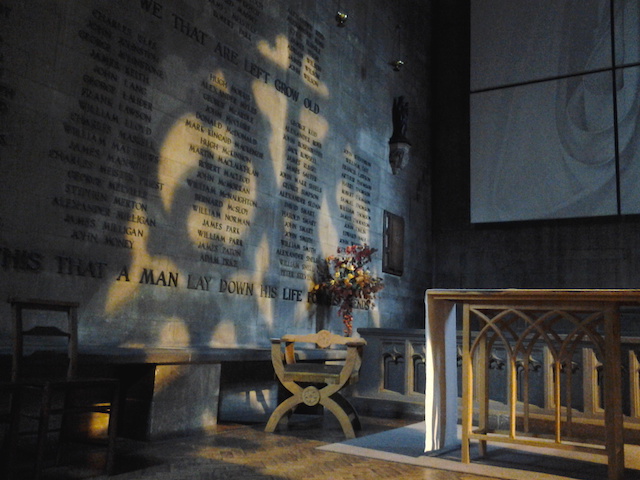
In our tradition, we are very used to ritual. Our services of course contain many familiar ritual elements, but there’s considerably more to ritual than just elaborate religious ceremonies. In our lives rituals play a number of roles: rituals in the face of loss can help us with grief and dealing with the loss, rituals in our families can make us feel closer, and rituals with a partner or friend can reinforce the relationship. In short rituals can help us to express things that can’t easily be expressed in other ways and that is why we find them so useful in relation to God.
Recently it’s been brought home to just how important rituals are. For the most part the Sunday morning rituals that are a feature of our worship are very familiar, because they’re how things have been done for a long time. However that isn’t true for all rituals. For instance, the past couple of years have made a lot of what we took for granted and that was once familiar newly unfamiliar. We’ve made changes to the way that we meet in Church, how we greet each other and how we share the Eucharist. The purpose is still much the same, but the manner has changed in both small and in larger ways, the rituals subtly different. In the same way we’ve adapted the rituals to reflect changes in our congregations and the circumstances of our gatherings.
Many of us have found some of these changes unsettling and struggled a bit in the face of it. However what’s really started me thinking more broadly about ritual, is not those ‘internal’ rituals of our weekly gatherings for prayer, praise and the breaking of bread, but the outward-facing rituals in which we help the wider community to find ways of engaging with events in the wider world. These are really important in our world right now, when we are all facing both actual and anticipated grief, joy, sadness, fear – virtually any emotion. In this rituals can help to restore our sense of control over our lives, however illusory this may be.
When we hear about war, the climate crisis, covid and almost any other change, we canexperience loss – we didn’t want it to happen, but there was nothing that we could do aboutit. That’s not a very unpleasant feeling, that sense that you’re not in charge of your life or most of what’s happening in the world around you. As Christians, it’s at times like this, when we can’t do anything ourselves that we turn to God, but what about those for whom ‘God’ has little obvious meaning?
Over the last few months, we’ve tried to offer a number of rituals to our wider communities, to help with expressing ‘difficult to express’ emotions (both negative and positive ones) in relation to climate, the war in Ukraine, world peace, the Queen’s Platinum Jubilee and the marking of the Centenary of war memorials in our communities. We’ve marked these in planting trees, reading out names, placing small wooden crosses in flowerbeds, in singing and prayer, in music, in silence, with shells, with candles, with stones and in simply being there.
In all these circumstances people need some sort of ceremony and ritual to bring them together, so that they can share the emotions that they, and others around them, are feeling with each other. The numbers taking part in these events are frequently much higher than they are in our church services, but where’s the surprise in that? That’s mission in action, just what Jesus urged us to do!
Ritual’s part of the rich heritage of our Church and something that we understand the importance of. People in the wider community recognise the truth of this and that’s why they ask us if we can help them to produce an appropriate response to whatever the situation is. It’s why people still come to us for funerals, weddings and the other occasional offices. For my money it’s one of the most important parts of what we as the Church are here for – making God possible beyond our walls and in the lives of those in our communities.
Blessings
James